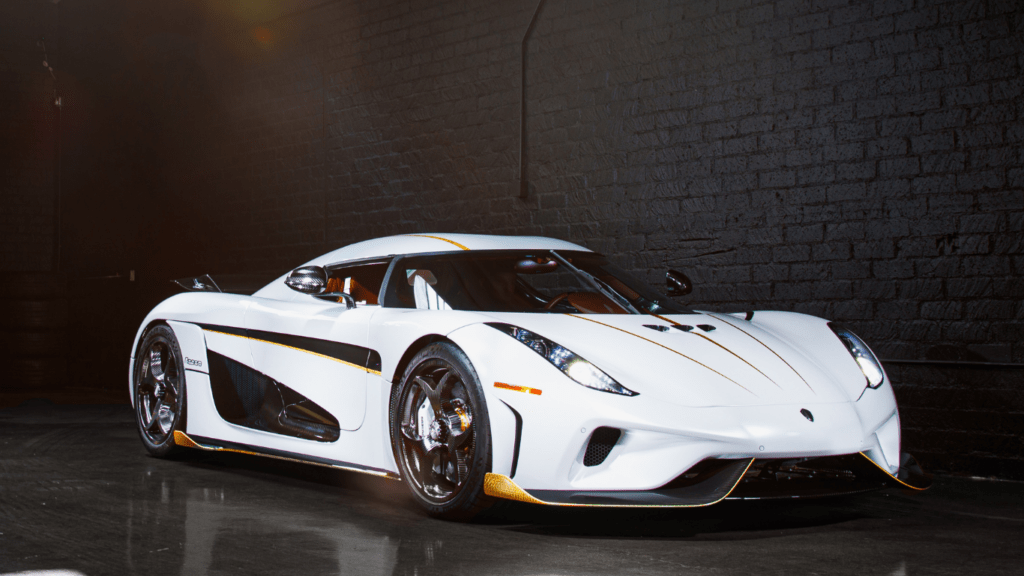Overview of Luxury Electric Cars
Luxury electric cars combine elegance with cutting-edge technology to offer a premium driving experience. Brands like Tesla, Porsche, and Audi lead the market with models such as the Tesla Model S, Porsche Taycan, and Audi e-tron. These vehicles not only boast impressive acceleration and top speeds but also prioritize sustainability. They often feature state-of-the-art interiors, advanced driver-assistance systems, and superior build quality.
Advanced battery technology contributes significantly to these cars’ appeal. The latest models offer ranges exceeding 300 miles per charge. Fast charging capabilities allow drivers to replenish their batteries in under an hour using high-power Level 3 chargers. This blend of range and quick charging alleviates range anxiety, making luxury electric cars practical for daily commutes and long-distance travel.
Environmental impact remains a core consideration. Luxury electric cars generally produce zero tailpipe emissions, reducing the carbon footprint. Many manufacturers also focus on sustainable materials for interiors, such as recycled plastics and vegan leather. This approach ensures that luxury doesn’t come at the planet’s expense.
Innovative features enhance the overall appeal. Examples include adaptive cruise control, autopilot systems, and high-resolution touchscreens. Enhanced connectivity allows seamless integration with smartphones and smart home devices. These features not only improve convenience but also ensure a safer driving experience.
Within the context of sustainable driving, luxury electric cars signify an essential shift. As more consumers recognize the environmental and performance benefits, their popularity will likely continue to rise. In summary, luxury electric cars exemplify the fusion of high-end technology and environmental responsibility, marking them as the future of sustainable driving.
Environmental Benefits
Luxury electric cars drastically reduce environmental impact. They combine advanced engineering with eco-friendly innovations, setting a new standard for sustainable transportation.
Zero Emissions
Luxury electric cars produce zero tailpipe emissions. Conventional vehicles emit harmful gases like CO2 and NOx, contributing to air pollution and climate change. Electric cars eliminate these emissions, improving air quality. For example, the Tesla Model S achieves this by running solely on electric power. This shift significantly reduces the carbon footprint of daily commutes and long-distance travel.
Renewable Energy Integration
Luxury electric cars can integrate with renewable energy sources. Owners who use solar or wind power for home charging reduce their reliance on fossil fuels. Brands like Audi offer home energy storage solutions compatible with their e-tron models. Charging stations powered by renewables further enhance this benefit, creating a sustainable energy ecosystem. This integration supports a cleaner environment and promotes renewable energy adoption.
Technological Advancements
Luxury electric cars gain popularity due to significant technological advancements enhancing performance and sustainability.
Cutting-Edge Battery Technology
Electric car batteries now deliver longer ranges and quicker charging times. The latest lithium-ion batteries provide over 300 miles per charge. Brands like Tesla and Porsche have pioneered these packs, improving energy density and efficiency. Additionally, innovations like solid-state batteries, which offer faster charging and higher safety, are emerging. Companies invest heavily in research to reduce battery weight and increase lifespan. This makes luxury electric vehicles (EVs) highly practical for both daily commutes and long trips.
Smart Features and AI Integration

- Luxury electric cars integrate smart features and AI to enhance user experience.
- Advanced driver-assistance systems (ADAS), such as Tesla’s Autopilot and Audi’s Traffic Jam Assist, provide semi-autonomous driving.
- These systems use AI for adaptive cruise control and lane-keeping assist.
- High-resolution touchscreens and voice-activated controls offer seamless interaction.
- AI also optimizes battery management, ensuring efficient energy use and longer life.
- The integration of these smart features creates a safer, more convenient, and enjoyable driving experience.
Economic Impact
Luxury electric cars are reshaping the economic landscape by fostering job creation and offering long-term cost savings.
Job Creation in Green Industries
Manufacturing luxury electric cars drives job growth in green industries. Companies like Tesla, Rivian, and Lucid Motors are expanding manufacturing facilities, creating thousands of jobs. These positions span across various sectors such as:
- assembly
- engineering
- battery production
- software development
For example, Tesla’s Gigafactory in Nevada employs over 7,000 people, contributing to local economies and reducing unemployment rates.
Growing infrastructure for electric vehicles also boosts employment. The development of charging stations, energy storage solutions, and renewable energy integration requires a skilled workforce. This demand creates jobs in construction, maintenance, and electrical engineering, benefiting communities nationwide.
Long-term Cost Savings
Luxury electric cars present notable long-term cost savings despite their higher initial purchase price. Owners save on fuel expenses as electricity costs less than gasoline. For instance, driving a Tesla Model S can cost roughly $0.04 per mile in electricity, compared to $0.15 per mile for a gasoline-powered luxury sedan.
Maintenance costs are also lower for electric vehicles. They have fewer moving parts and don’t require oil changes, transmission repairs, or exhaust system fixes. According to a Consumer Reports study, electric vehicle maintenance and repair costs are about 50% less than traditional vehicles over the vehicle’s lifespan.
Additionally, government incentives and tax rebates further reduce the effective cost of luxury electric cars. Programs such as the federal tax credit offer up to $7,500 for eligible electric vehicles, making them more accessible to a broader audience. These financial benefits underscore the economic advantages of transitioning to luxury electric cars.
Consumer Trends and Preferences
Interest in luxury electric cars is surging as sustainability becomes a priority for consumers. This trend influences purchasing choices across various demographics.
Growing Demand for Sustainable Options
Consumers increasingly choose sustainable options, recognizing the environmental impact of their decisions. In 2022, electric vehicle (EV) sales surpassed 6.5 million units globally, indicating a shift away from fossil-fueled cars. High-income individuals prioritize eco-friendly alternatives, with a noticeable preference for luxury EVs. Examples include the Tesla Model S and Mercedes EQS. These vehicles appeal due to their zero emissions, high performance, and premium features.
Luxury electric cars often use eco-friendly materials, enhancing their appeal. Brands like BMW and Polestar incorporate recycled and sustainably sourced components in their vehicles. This commitment drives the growing demand for luxury electric cars.
Shifting Luxury Market
The luxury market is evolving as consumer preferences shift toward sustainability and innovation. Traditional luxury car buyers now seek high-end electric vehicles, valuing technology and environmental responsibility. Models like the Porsche Taycan and BMW iX embody this trend by merging luxury with cutting-edge EV technology.
Luxury brands are also focusing on unique customer experiences, further boosting demand. Personalization options, state-of-the-art technology, and exclusive services distinguish luxury electric cars in the market. Tesla offers over-the-air updates, providing new features and improvements, enhancing the ownership experience.
The convergence of sustainability, technology, and luxury drives the future of the automotive industry. As awareness of environmental issues grows, consumers’ preference for luxury electric cars continues to rise, marking a significant shift in market dynamics.



 Luxury Lifestyle & Partnerships Manager
Luxury Lifestyle & Partnerships Manager
